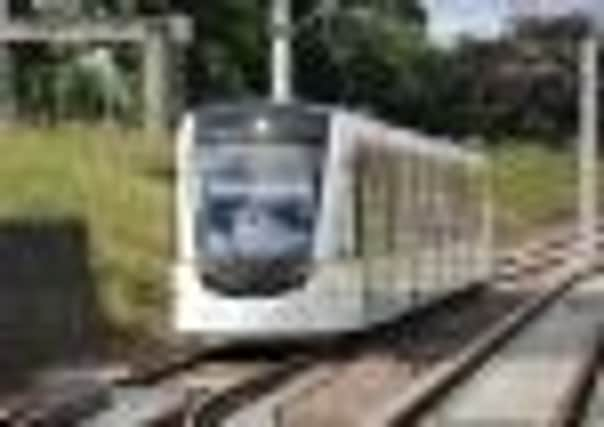Jane Devine: Tram-mad Edinburgh should still consider going the bike route


But we have a hard enough job making people swap their car for the bus (or tram), never mind a bike.
That’s probably because there are drawbacks to cycling or owning a bike in the city: where do you leave your bike, where do you store your bike, what if it’s raining? It’s true cycling isn’t for everyone or every occasion, but the benefits of cycling in terms of health, congestion and time-saving are huge. We just need to make it easier.
Advertisement
Hide AdAdvertisement
Hide AdWe also need to make cycling part of a bigger integrated transport plan for the city because realistically we all use different forms of transport for different purposes and occasions at different times. We also need a transport system that allows easy movement between different modes of transport while encouraging the more environmentally friendly and healthy options as much as possible.
We need safe pedestrian routes that are well-lit and link to transport stops; secure bike racks at stations and bus stops; decent park-and-ride provision; timetables that connect across different forms of transport; and tickets that are valid on every mode of transport and across all operators.
Edinburgh’s answer has been trams, but as Scotland’s capital moves to complete the most expensive city centre transport project in memory, many will wonder what £1 billion of public money will actually do to help Edinburgh achieve these goals, and whether there were more innovative ways to spend less money and have a greater impact on congestion.
Last week, the city council in Liverpool announced that they are to introduce their own transport project aimed at easing congestion: they are to introduce their version of London’s bike-hire scheme, affectionately referred to as the Boris Bikes. Liverpool, a city of a similar size to Edinburgh, is spending £1.5 million to put 1,000 bikes at 60 locations across the city. The bikes can be hired at one station, left at another and the first 30 minutes are free. Generally, the bikes are used for the last stage of a journey, a commute to work, travelling to meetings and appointments, or for tourists to see a different side of the city.
The main beauty, though, is that there is no upkeep – if you get a puncture, you get another bike; there are no issues of security – you simply lock the bike into its electronic stand and leave it; and, if you bike to work and it starts raining, you can get the bus home.
Edinburgh could have provided double the number of bikes that Liverpool is planning and not even dented the tram budget. So how about it – Burgh Bikes, anyone?